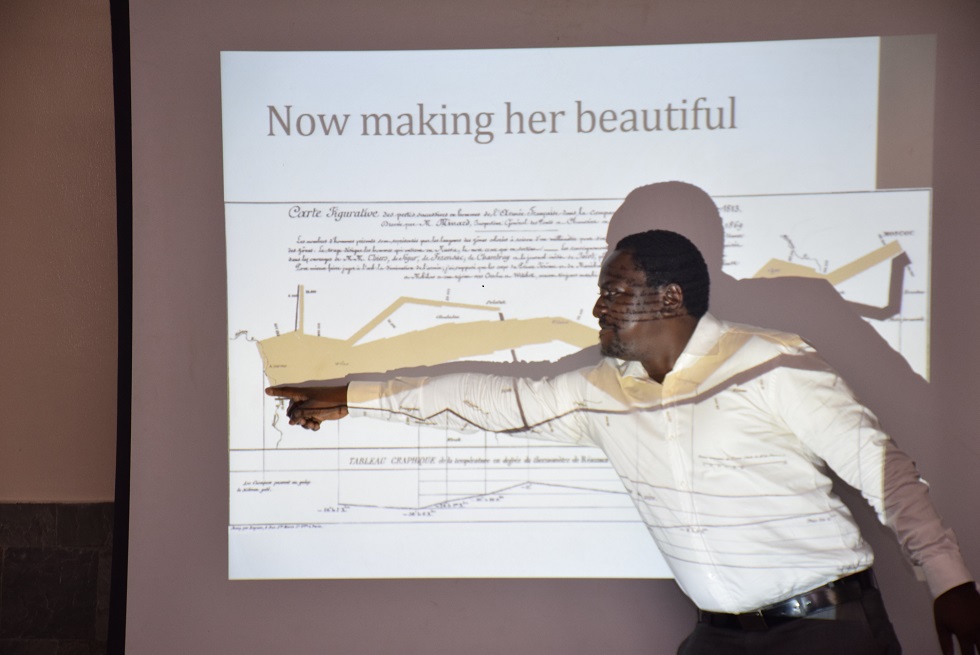File photo: Seun Akinfolarin, Managing partner and co-founder, Sahara Reporters Civic Media Hub, taking participants through generating data and using simple inforgraphics for investigative journalism
BY MICHAEL FALOSEYI
‘The devil is in the details’ is a popular idiomatic expression that signifies that those seemingly inconsequential or minute aspects of more extensive information have the most impact. Sometimes, the presentation could indicate that the crucial information is in the easily neglected part of the bigger picture. Better still, the idiom implies things may not necessarily be as they appear on the surface of it. All these and any other interpretation of the idiom signify the beauty of data journalism as one of the emerging aspects of the journalism profession.
Data journalism entails finding story angles or pegs from extensive data. It is a new aspect of journalism that requires lots of research and the ability to interpret figures. Professionals and training institutions should be interested in providing competence in data-driven journalism. It is not unexpected that some might be wondering about data journalism, including many who, out of morbid fear of mathematics, embrace any mass communication professions in preference for other disciplines like accounting or other numerical-based professions. Data-driven journalism is like investigative journalism because it unravels seemingly hidden details in large numbers.
But beyond the professional competence in DDJ, government information managers and news sources need to be aware of the changes in the practice of journalism. Their understanding of the changes journalism is going through, and their ability to package their information in such a way will determine how stories about their organisations and businesses will be reported. Public institutions’ information managers need to get acquainted with data journalism. Contemporary journalists must equip themselves with the skills to analyse and interpret data. Data journalism may be all that is required to distinguish professional journalists from citizen journalists. Citizen journalism is another trend in the information management landscape whereby anyone with a mobile phone can report and circulate information at will.
The Director General of the World Trade Organisation, Dr Mrs Ngozi Okonjo-Iweala, set the example for public officeholders about data journalism when she, as the finance minister, started the publications of the monthly allocations to state and federal government. And that is why most public officeholders need to embrace data journalism by putting the figures out for professionals to make sense of it and write their stories. Such data enhances the quality of reportage and the public debate around it. It also encourages accountability in public offices.
Advertisement
Notwithstanding the many benefits of data-driven journalism, media houses in Nigeria, except very few, are yet to catch up with this trend. Commenting on the development, Professor Desmond Okocha of the Mass Communication Department, Bingham University, Karu Nasarawa state, at a recent professional platform, emphasised the benefits of data journalism and the need for professionals and tertiary institutions to equip their students on the emerging trend on the skill required for data journalism. Civil society organisations also need to develop competence in this emerging field as it would enhance their advocacy roles, thereby expanding the scope of accountability in public offices.
Views expressed by contributors are strictly personal and not of TheCable.
Add a comment






